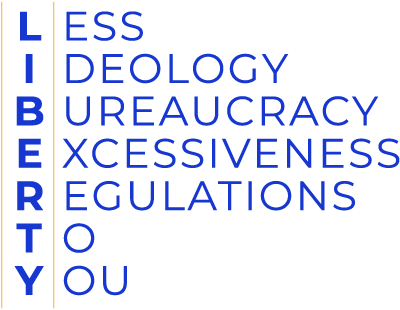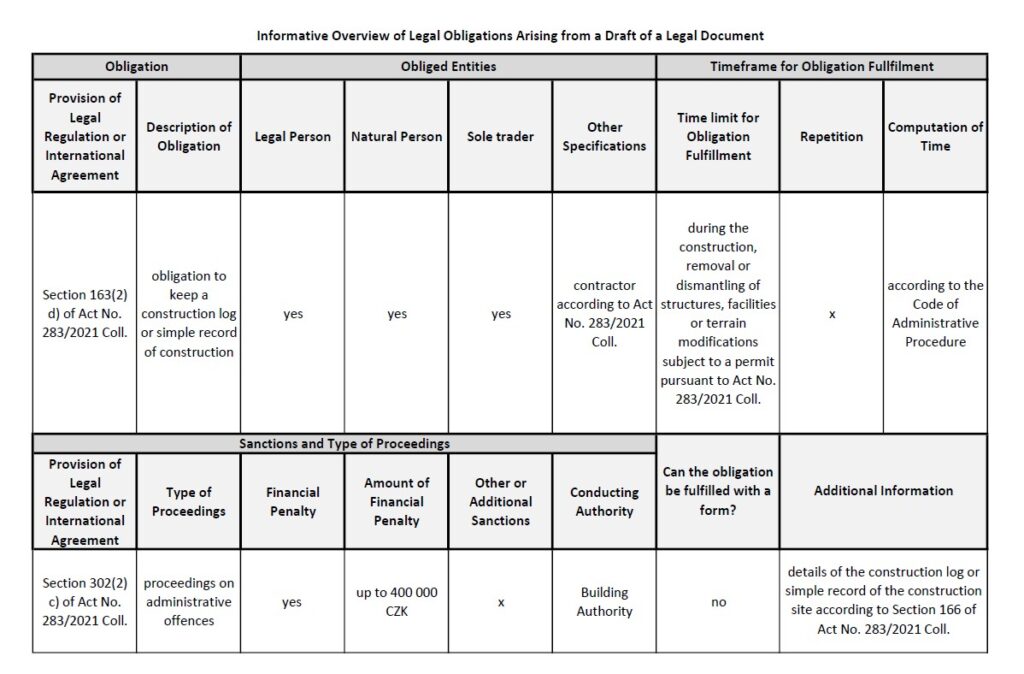Anti-Bureaucratic Reform in Practice

It is widely acknowledged that our legal system is as murky as a muddy pond that keeps filling up and never drains. We face an unprecedented amount of legal regulations, as the state wields tens of thousands of legal acts and hundreds of thousands of obligations. This oversaturation not only creates a complicated bureaucratic apparatus but also places enormous demands on entrepreneurs. The unsustainable situation, worsened by the constant adoption of new laws and other regulations, has put a stop to the effective functioning of society, especially in the economic field.
Moreover, over the last two decades, the increase of regulations and obligations has accelerated. For example, the Trade Licensing Act in has been amended more than 120 times in 20 years, the Building Act over 100 times, and administrative fees more than 180 times. An ordinary entrepreneur has little chance of keeping up with such a volume of changes.
When discussing bureaucracy, the European dimension cannot be overlooked. The pace of adopting European regulations increases with every new President of the European Commission. That is why we also promote the same systemic tools at the European level as in the Czech Republic, which would limit the space for national authorities to introduce unnecessary additions.

Our Solution – The Anti-Bureaucratic Act = Act on the Protection Against Unjustified Regulatory Burden and Excessive Bureaucracy
WHAT DOES IT MEAN:
First, order must be brought into the legal system. We propose creating a table of public law obligations for all existing laws. Each legislation would be individually analysed, and its often complex text structured in a clear table or data record.
Example
Obligation to keep a construction log or a simple record of construction
Act No. 283/2021 Coll., Section 163(2)(d) and penalties under Section 302(2)(c)
Section 163
Contractor
(2) When constructing or removing a structure, facility, or landscaping subject to a permit under this Act, the contractor is also required to
a) carry out or remove the construction, facility or landscaping in accordance with the decision of the building authority, the verified documentation for the permit for the intention and the documentation for the execution of the construction or the documentation for the removal of the construction,
b) ensure compliance with the obligations to protect life, health, the environment and occupational safety arising from other legal regulations,,
c) ensure that work on the construction, removal or landscaping for which a special permit is required is carried out only by persons who hold such a permit,
d) keep a construction log or simple record of the construction..
Section 302
Offenses committed by selected persons
(2) The contractor commits an offense by
a) constructing or removing a structure in violation of § 163(2)(a),
b) violates any of the obligations under § 163(1) or § 163(2)(b) or (c), or
c) in violation of § 163(2)(d), fails to keep a construction log or simple record of the construction.
Section 304
Common provisions
(1) Offenses under this Act shall be dealt with by the authority competent under Sections 32 to 35; offenses under Section 302(4) and Section 303(4) shall be dealt with by the regional authority.
(2) A violation of the conditions of a decision which the building authority has incorporated into its decision on the basis of a uniform environmental opinion shall not constitute an offense under this Act.
(3) For the purposes of this part, construction shall also mean landscaping.

The concept of mandatory table compilation and regular checks
This concept of compiling obligations into tables and conducting regular checks allows the identification of imperfect definitions, insufficient deadlines, disproportionate sanctions, or overlap of inspections by several supervisory bodies.
By comparing structured tables of various laws, we can identify duplicate, contradictory, or mutually exclusive obligations. All public law obligations from all pieces of legislation can be processed in this way into a clear table. With each amendment, the table only needs to be updated. For new laws, automatic cross-checking would help detect inconsistencies with pre-existing obligations.
The proposed Anti-Bureaucratic Act also includes annual reviews of the effectiveness of imposed obligations. Ministries and authorities would evaluate whether obligations remain necessary, respected, monitored, and sanctioned. They would assess the bureaucratic burden involved, whether it is still justified or whether it could be reduced in the future.
Overgrown Bureaucracy – A Hidden Competitor to Entrepreneurs
We believe public authority should support entrepreneurs, not burden them. However, the state often exceeds its original role of safeguarding rules and begins to act as a player itself, disrupting natural competition and creating space for bureaucratic “free riders” who drain entrepreneurs’ time, money, and energy.
Therefore, we propose that organisations representing entrepreneurs should have the opportunity to initiate the removal of unjustified regulation. It is evident that, when assessing the effectiveness of legislation, there may not always be agreement between public authorities and representatives of the business community. In such cases, the resulting disagreement should be reviewed by the highest political executive body of the state – the government. It is the government that should assess whether the regulation and bureaucracy imposed on entrepreneurs constitute a disproportionate burden and whether they limit the country’s economic and social development. The government would be required, within a set deadline, to decide whether to support a proposal to remove unjustified regulation or excessive bureaucracy and submit it to Parliament for consideration, or whether it considers such a proposal unfounded and will leave the scope of regulation unchanged, in which case it must provide substantive arguments to support its position.
